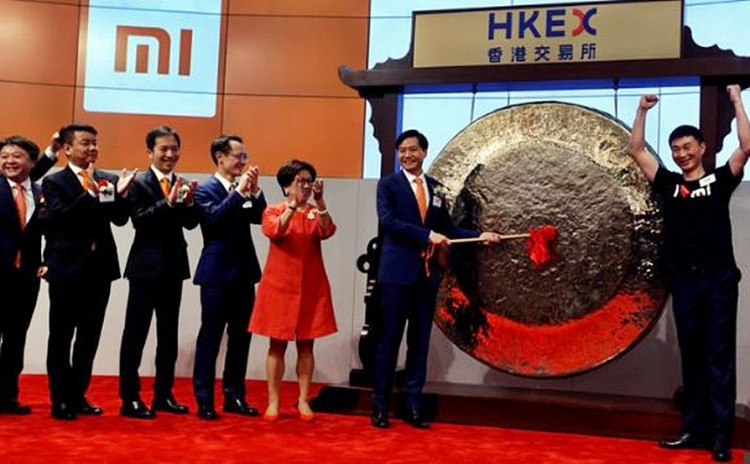The IPO of Xiaomi Corporation, the world's fourth-biggest smartphone maker, got off to a dismal start in Hong Kong yesterday and ended in bitter disappointment.
At the end of the trading day, the company raised only $4.7 billion (HK$36 billion) from institutional investors. This gave it a market capitalization of about $54 billion, which was slightly more than half the $100 billion Xiaomi had hoped to attain when the listing was announced earlier this year.
The Android smartphone maker's shares plummeted in early trading to as much as 5.9 percent from its listing price of HK$17 ($2.17), which was at the bottom of the range the company wanted. The stock opened at HK$16.60 ($2.12); fell to as low as nearly six percent before closing up 1.2% to HK$16.80 ($2.14).
The dismal result confirmed investor skepticism in the stock despite the intensity of the hype Xiaomi sought to create in advance of the IPO. Investors seem to doubt Xiaomi can transition from a maker of really cheap smartphones into a high-end equipment-and-hardware brand in the same class as Apple.
Xiaomi has refused to explain how it intends to achieve this remarkable feat. Its IPO price was also controversial and inflated: it represented a multiple of 39.6 times 2018 earnings.
One theory for the disappointing debut is that retail investors didn't buy CEO Lei Jun's glowing pre-IPO narrative the company's business model is a "new species" and a "triathlon model." Then there was another, more plausible reason for the lackluster debut -- China's trade war with the United States that began July 6.
Lei admitted the unfortunate IPO timing in statements at the Hong Kong stock exchange on Monday morning. "At this critical moment in Sino-US trade relations, the global capital markets are in constant flux," he said. Although the macroeconomic conditions are far from ideal, we believe a great company can still rise to the challenge and distinguish itself."
"I think it is hard for investors to buy the valuation. The company has to transform to justify the valuation and there is too much uncertainty about whether it can do that," said Paul Gillis from Peking University in Beijing.





